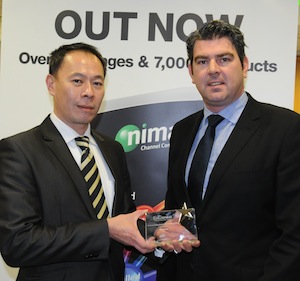 Analysis by Philip Carse, Megabuyte.com: The usually well informed Nic Fildes at The Times this morning reports that Virgin Media is in talks to acquire Daisy, but that the negotiations have stalled over price.
Analysis by Philip Carse, Megabuyte.com: The usually well informed Nic Fildes at The Times this morning reports that Virgin Media is in talks to acquire Daisy, but that the negotiations have stalled over price.
Such a move would be strategically sensible for Virgin Media Business, creating a near £1bn B2B business, while Daisy's 12x EBITDA target doesn't seem too ambitious.
According to the article, informal talks between Liberty Global/Virgin Media Business (VMB) and Daisy have stalled over price, with Daisy holding out for 220p a share (versus 188p close yesterday). The article also notes that Daisy has pulled back from a bid for Phoenix, since when Phoenix has installed a new CEO and raised £8.6m.
Daisy CEO Matt Riley told us that he can't comment on press speculation.
A Virgin Media Business bid for Daisy would in many respects be unsurprising and strategically sound. While Virgin has steered clear of M&A in recent years, the arrival of Liberty Global last year will have changed the whole dynamic for the business, with Liberty Global being rather fond of M&A.
Daisy would add £350m of revenues to Virgin Media Business's £605m, taking the combined B2B group to within a whisker of £1bn and the broader Virgin business to nearly £4.5bn.
There would also be a good fit: VMB is strong in public sector, especially local authorities, and enterprise, where Daisy has growing ambitions, whilst Daisy is strong in SME, where VMB has historically been weak despite having a network passing millions of small businesses. Bringing much of Daisy's traffic on to Virgin's network would also presumably unleash significant synergies. Daisy also now has a reasonable data centre and hosting presence, where Virgin has hardly featured.
Meanwhile, a Daisy/Phoenix tie up had been rumoured for some time, which would have added significant revenues to Daisy (£230m), but a lower 50% EBITDA lift (about £30m versus Daisy's £56m).
It would however have presented Daisy with considerable integration challenges given Phoenix's well publicised problems (unclear strategy, poor business performance and accounting irregularities). One of the attractions of Phoenix to Daisy would have been its IT services business (engineers etc), but Daisy can also go for this market on its own, particularly given last October's Indecs acquisition.
A 220p price for Daisy would equate to about 12x EBITDA, which does not seem an overtly ambitious target given current Telecoms and Networks multiples of 8-12x, with Alternative Networks on 11.7x and Talk Talk on as much as 15.5x (reflecting EBITDA being depressed by investments in TV).
However, Liberty paid only 8.8x historic/7x expected EBITDA for Virgin Media just over a year ago, and is paying just 11.3x EBITDA for Dutch cable TV operator Ziggo, which comes with billions of network assets. However, Telecoms & Networks has been the best performing of the Megabuyte peer groups in share price terms over the last year, and VMB will have to stump up higher valuations anyway if it wants to buy sizeable companies.
If the two sides fail to reach agreement, Daisy still has a substantial M&A war chest, though some sizeable and obvious fits have gone elsewhere (for example InTechnology, acquired by Redcentric), while Updata may well fall into the hands of Capita.

 KCOM Group has raised more than £17,000 to help young disadvantaged people across the UK by taking part in The Prince's Trust Million Makers competition.
KCOM Group has raised more than £17,000 to help young disadvantaged people across the UK by taking part in The Prince's Trust Million Makers competition. Nimans has bagged the Outstanding Distributor Award 2013 from long-range wireless technology company Engenius.
Nimans has bagged the Outstanding Distributor Award 2013 from long-range wireless technology company Engenius.